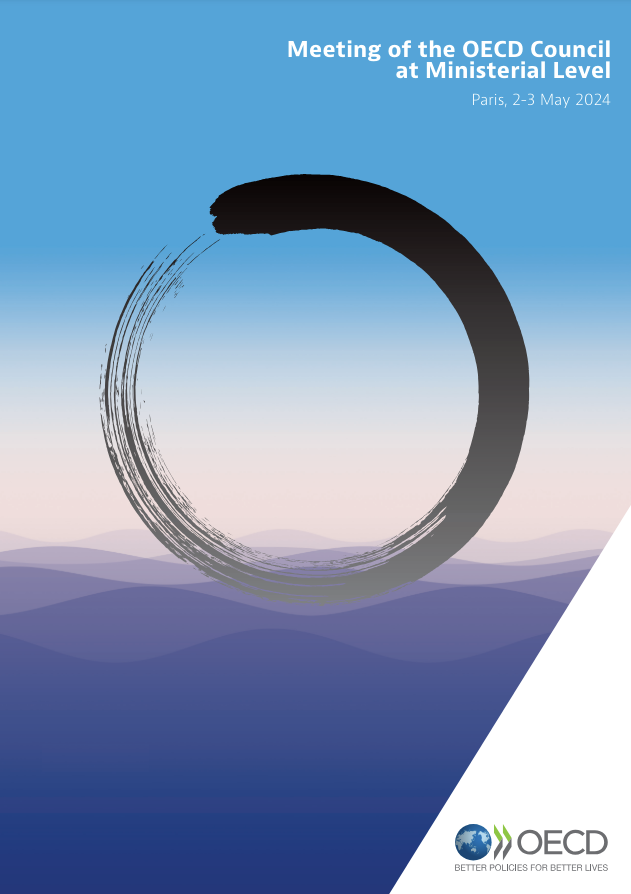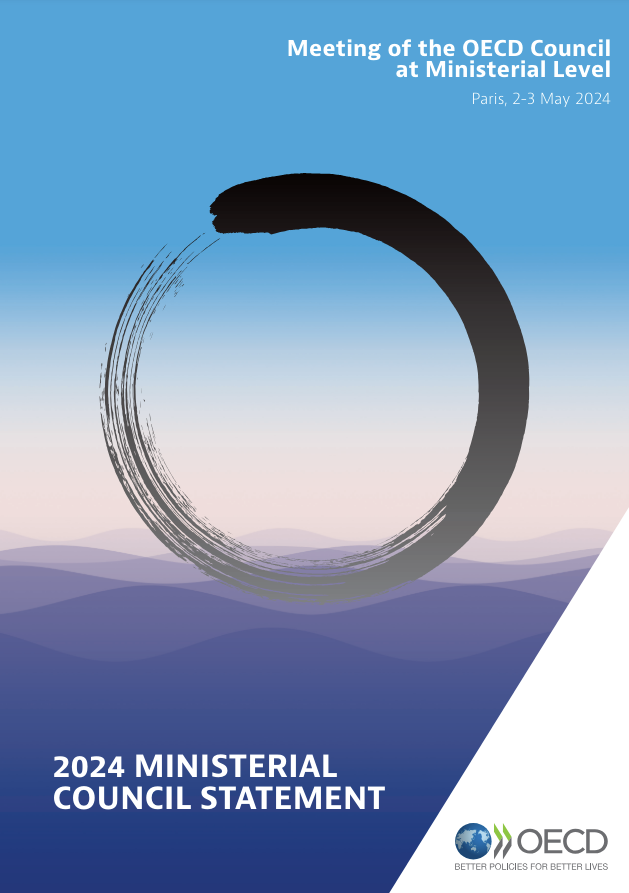Remarks by Mathias Cormann, Secretary-General, OECD
7 June 2023
Welcome to this OECD Ministerial Council Meeting on Shared Values and Global Partnerships.
Thank you, Foreign Secretary James Cleverly, for chairing our meeting.
A warm welcome also to our Vice Chairs – Minister Tovar from Costa Rica and Minister O’Connor from New Zealand.
A special welcome to the Prime Minister of Ukraine, Denys Shmyhal and to Indonesia’s Minister of Finance, Sri Mulyani Indrawati and India’s G20 Sherpa Amitabh Kant, who are joining us virtually this morning.
This is an uncertain time for our economies, our societies, and for the global rules-based order.
As set out in the OECD Economic Outlook released this morning, the global economy has begun to improve, albeit, at this point, to a low global growth recovery.
The upturn remains fragile.
Risks remain tilted to the downside.
We are yet to unwind the inflation problem.
There is the uncertainty caused by Russia’s continuing war of aggression against Ukraine.
Geopolitical tensions and trade restrictions threaten to hold back growth and exacerbate economic vulnerabilities.
In this environment, policymakers must continue to do both – respond intelligently to the short-term pressures, while resolutely pursuing progress on longer-term structural reform priorities.
We need to boost sustainable and inclusive growth.
To achieve that, we must lift productivity, promote more competitive markets and continue to liberalise trade and investment regimes.
We must address the impact of population ageing and realise genuine gender quality and women’s empowerment.
We must drive the digital and green transformation of our economies.
And we must preserve and improve the ability of nations to work together, including by maintaining the global rules-based trading system in good working order.
These are shared challenges that require a common, well-coordinated approach, grounded in our shared values.
This year, we celebrate the 75th anniversary of the creation of our predecessor organisation, the Organisation for European Economic Co-operation.
The OEEC helped put Europe on the path to post-war reconstruction and recovery, through international co-operation and market-based principles.
These principles, and the OECD’s core values of individual liberty, democracy, the rule of law, and the defence of human rights, have stood the test of time.
And these principles have never been more important than today.
Prime Minister Shmyhal,
Dear Dennis,
We are honoured to be joined by you today.
The people of Ukraine are, literally, on the frontline defending our core values of freedom and democracy.
We continue to be horrified by the terrible pain and suffering caused by Russia’s war of aggression against Ukraine, the lives lost, the homes, livelihoods and infrastructure destroyed.
Now this terrible disaster following the destruction of the Kakhovka Power Plant and dam.
We are in awe of what the people and the democratically elected government of Ukraine are managing to achieve in the face of this senseless continuing Russian aggression.
You have our very strong solidarity and support.
I look forward to our official launch in a moment of the OECD Country Programme for Ukraine, designed to support the efforts of your government to rebuild, recover and reform.
More broadly, over the next two days we will advance the OECD’s contributions to effective multilateral solutions:
On optimising the strength and the quality of economic development and growth.
Ensuring everyone has the right opportunities, the best possible opportunities, to participate in and benefit from economic development and growth.
To boost economic growth, wellbeing and prosperity, realising gender quality must remain a priority.
The OECD will build on our Gender Recommendations with our proposed strategy, the OECD’s Contribution to Promoting Gender equality, which will leverage our comparative advantages, including data and gender equality mainstreaming.
On promoting sustainable, values-based and responsible technology development.
Yesterday, the inaugural Global Forum on Technology explored the policy tools we need:
- To ensure technology is consistent with open and trusted markets, pluralism and the protection of human rights,
- To address digital divides, and
- To manage potential adverse effects of technology on sustainability and resilience.
We also must not lose sight of the importance of technology and innovation in supporting the transition to net zero – from cleaner power generation, more efficient energy grids, new agricultural techniques and more sustainable transportation networks.
On reinforcing our support for the rules-based trading system, and for economic resilience.
Our meeting is an opportunity to set out our common strategic vision for trade, grounded in a commitment to open markets and a recognition of new realities and challenges.
This includes the need to enhance the resilience of key supply chains, the social and environmental sustainability of trade, and our engagement with the World Trade Organisation.
On strengthening our global engagement.
The proposed Strategic Framework for the Indo-Pacific will help enhance our partnerships across this region, which is a key driver of global economic growth and the green transformation, boosting participation by countries in the region in OECD bodies and instruments and creating the conditions to welcome countries from the region as Members of the OECD.
In parallel, the Accession process is well underway for Brazil, Bulgaria, Croatia, Peru and Romania, with a positive dialogue continuing with Argentina.
In closing,
At a time when the rules-based international order is under significant pressure, we need more multilateralism, not less.
We need more dialogue and cooperation to find solutions to our shared challenges.
At the OECD, this kind of cooperation is part of our DNA – in our values, our principles and our organisational methodologies.
The instruments you decide to put in place, the agenda you set out for the year ahead and the contributions you make over the next two days will help us continue to provide:
- a platform for evidence based mutual learning and positive international dialogue and cooperation.
- standards as instruments and tools to help level the global playing field by encouraging a common approach to shared challenges.
- And evidence-based policy recommendations to help governments tackle both immediate challenges, and long-term priorities,
Always with our core vision in mind, of ensuring better policies for better lives.

